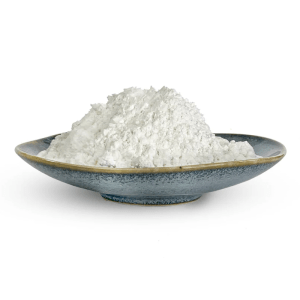
# Starch Sugar Production and Applications
## Introduction to Starch Sugar
Starch sugar, also known as glucose syrup or corn syrup, is a sweetener derived from starch through enzymatic or acid hydrolysis. It is widely used in the food industry due to its functional properties and cost-effectiveness compared to sucrose.
## Production Process of Starch Sugar
The production of starch sugar involves several key steps:
### 1. Starch Extraction
Raw materials such as corn, wheat, or potatoes are processed to extract pure starch. The starch is separated from proteins, fibers, and other components through wet milling and centrifugation.
### 2. Liquefaction
The extracted starch is mixed with water and heated to form a slurry. Enzymes (typically α-amylase) are added to break down the starch molecules into shorter dextrin chains.
### 3. Saccharification
Further enzymatic treatment with glucoamylase converts the dextrins into simpler sugars, primarily glucose. The degree of conversion determines the final product’s sweetness and properties.
### 4. Refining and Concentration
The resulting sugar solution is purified through filtration and ion exchange. It is then concentrated by evaporation to achieve the desired syrup consistency.
## Types of Starch Sugar
Different processing methods yield various types of starch sugar:
1. Glucose Syrup
Contains varying proportions of glucose, maltose, and higher saccharides. Used as a sweetener and humectant in food products.
2. High Fructose Corn Syrup (HFCS)
Produced by enzymatically converting some glucose to fructose. HFCS-55 (55% fructose) is commonly used in soft drinks.
3. Maltodextrin
A lightly hydrolyzed starch product with minimal sweetness, used as a bulking agent and texture modifier.
Keyword: Starch Sugar
## Applications of Starch Sugar
Starch sugar finds numerous applications across industries:
Food Industry
- Confectionery: Provides sweetness and controls crystallization in candies
- Bakery: Enhances browning and moisture retention
- Beverages: Used as a sweetener in soft drinks and juices
- Dairy: Improves texture in ice cream and yogurt
Pharmaceutical Industry
Used as an excipient in tablets and syrups, providing bulk and sweetness to medications.
Industrial Applications
Fermentation substrate for alcohol production and biofuel manufacturing.
## Advantages of Starch Sugar
Starch sugar offers several benefits over sucrose:
- Cost-effective production from abundant starch sources
- Customizable sweetness and functional properties
- Better solubility and stability in processed foods
- Lower freezing point depression in frozen products
## Conclusion
Starch sugar production has become a vital part of the sweetener industry, offering versatile products for diverse applications. As food technology advances, we can expect further innovations in starch sugar processing and utilization across various sectors.